10 Must-Have Website Optimization Tools For Ecommerce Stores To Win Customers Over

Feature Image Source: Freepik
It takes tons of marketing efforts to trigger the interest of prospective customers and bring them over to your website. Once there, and you see high bounce rates, it becomes very frustrating. You’ll be happy to know you’re not the only one; around 73% of companies have no idea why customers abandon their shopping carts. Ecommerce website owners are silently paying the price by losing sales. But you don’t have to, if you know the right website optimization tools and learn how to use them to monitor and gauge the progress of your ecommerce store minutely.
Moz
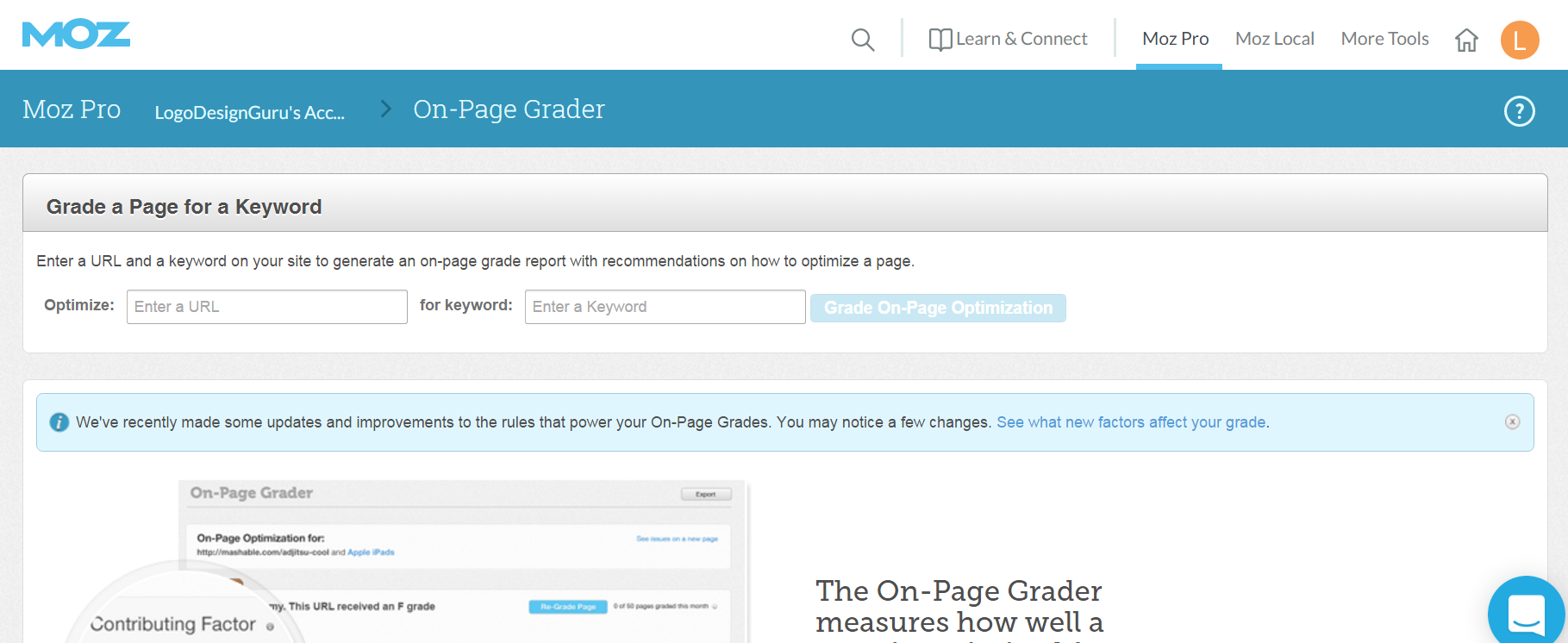
Over the years MOZ has earned a reputation for being an authority in SEO most notably because of Rand Fishkin’s Whiteboard Friday and because of its cool SEO tools. For your e-commerce website, the first thing that you need to do is to conduct an on-page SEO audit. What better tool than MOZ’s On-Page Grader. It helps grade your website according to the required on-page SEO items by the level of importance and correlation with the keyword(s) you want to rank for. What’s more, it also offers suggestions on how to fix the errors. It’s a keeper.
Varvy
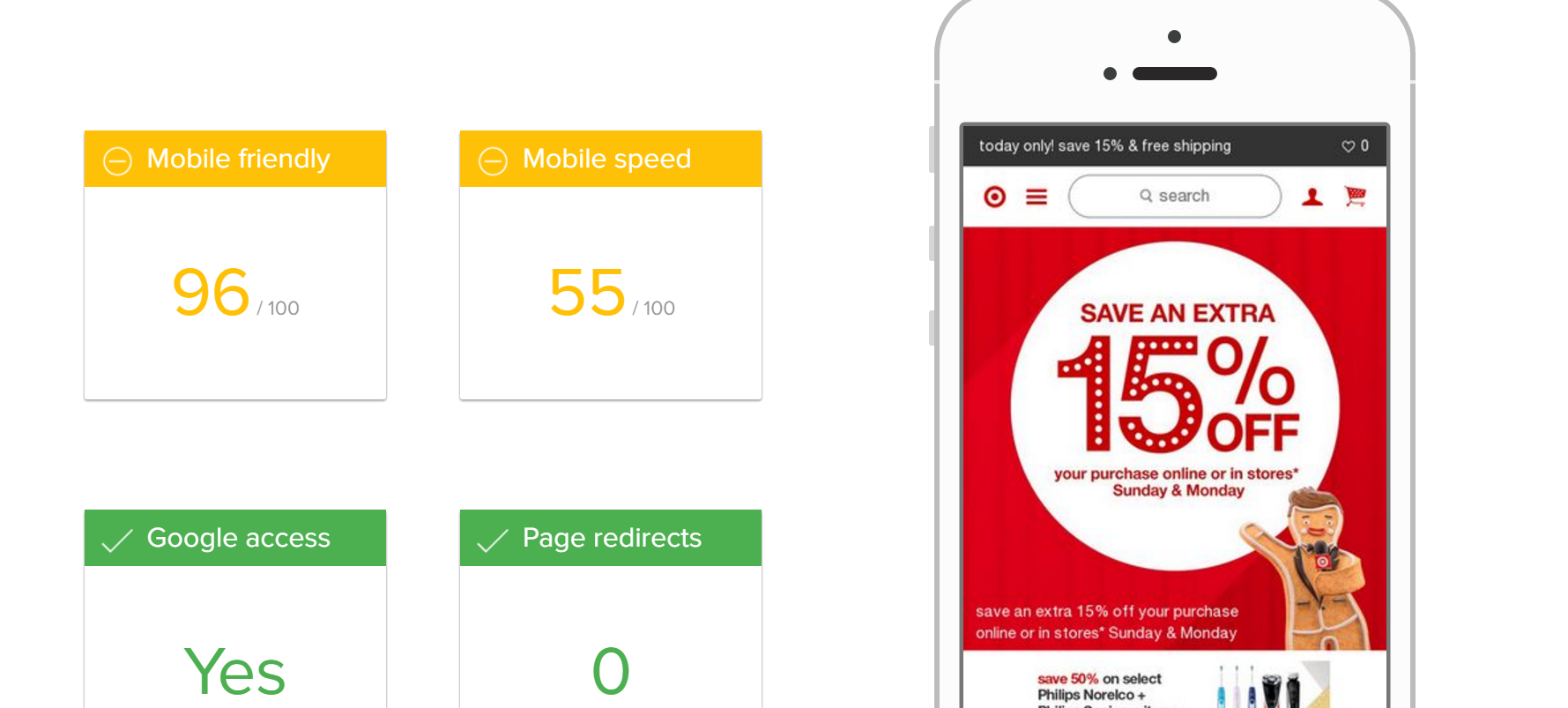
According to Danielle Walton of Adept, during the holiday season such as Christmas and New Year, 53% of online shoppers use mobile for their purchases and gift buying. That’s huge, and also an indication that e-commerce store owners have a better chance to win their customers if they optimize their website for mobile friendliness. Considering Google has introduced AMP pages to help boost mobile usability, we better listen to what it’s trying to say – go mobile friendly or go out.
Apart from Google and Bing, Varvy’s mobile usability testing tool is one of the top to check your site and find out what’s missing from it. The idea is to optimize your website so that online shoppers get to shop in the first go when they punch in the keywords. It also identifies issues with mobile usability clickable links, CTAs being too small on screen, images are not optimized for mobile, or the content is too small to read, so on and so forth. Varvy should be one of your best SEO friends.
Pingdom
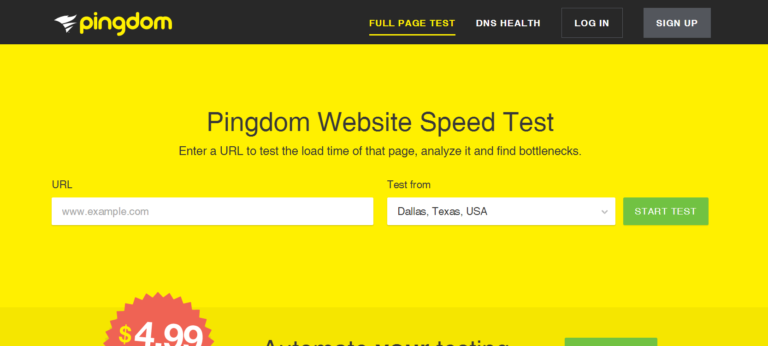
If anyone should be sensitive about a website’s speed, it should be an e-commerce store owner. According to Kissmetric’s estimate:
“If an e-commerce site is making $100,000 per day, a 1 second page delay could potentially cost you $2.5 million…”
Go figure that out.
In this regard Google Page Speed Test tool is good but Pingdom makes this task even better. With Pingdom website speed testing tool you get performance insights categorized into codes, content type, request type, as well as you get to choose to ping your website from a certain location. Highly recommended.
Ahrefs
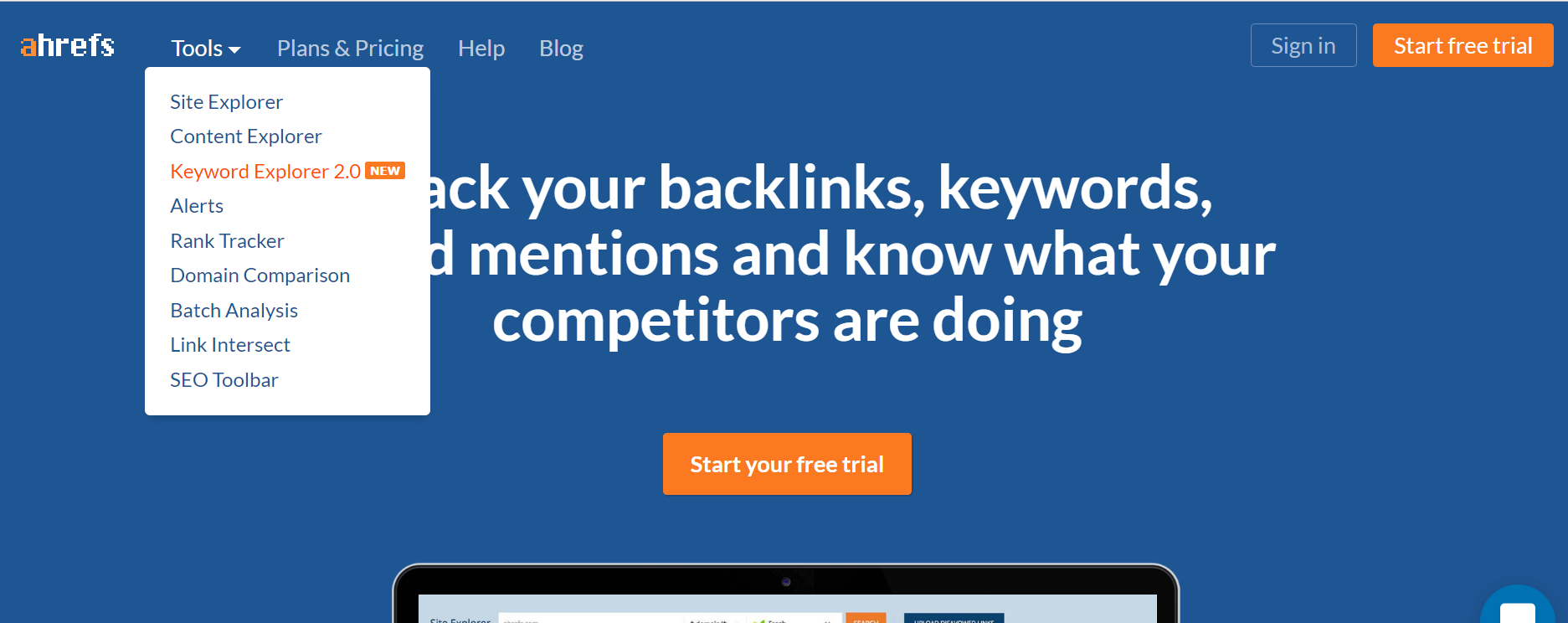
One of the most important things in SEO is preparedness, whether you’re looking at on-page or off-page optimization. For an e-commerce website optimizing for keywords is one of the most critical action items – which can result in hit or miss for your target customers. Ahrefs is one tool that makes sure your website is covered from both ends. From spying on your competitors for backlinks to determining what type of content should be created to attract your audience, and to research for keywords to rank for, Ahrefs offers in-depth reports and allow you to make educated decisions. And the best part is that Ahref’s user interface is vouched for by even industry leaders.
UbberSuggest
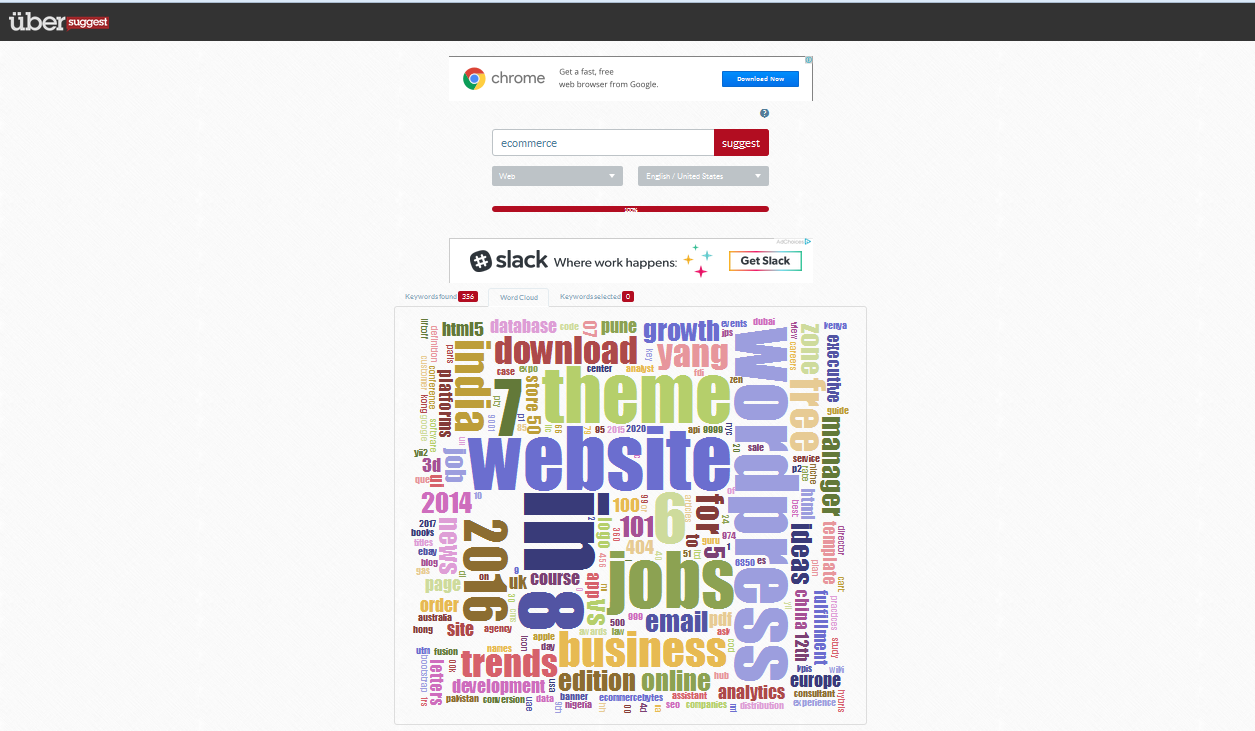
Ideally, we should check the keywords of our ecommerce store on a regular basis to give us a fair idea about the popular search queries and phrases. UberSuggest comes in handy because it shows the data from Google and other search engines. It is also a quick tool for digging out long-tail keywords, not provided, and suggest on target topics for users to pursue for their e-commerce website. A word cloud representation of keyword search like the above from this tool is all a smart content curator needs to create great content for their website.
LucidChart
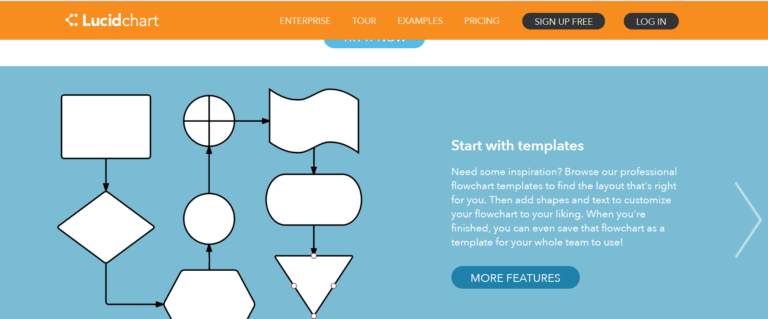
To make sure that you don’t get lost in the content curation process of your e-commerce website, it’s a smart idea to have them jotted down in an organized way – outlining those which have been implemented, and those that still needs to be implemented. LucidChart can help you with the creation of a content architecture which will come in handy from time to time when you want to know where you’re at in terms of addressing long tail or alternate keywords in your on-page optimization.
Wayback Machine

This is an excellent tool that can provide a historical archive of not just your own website but also your competitor’s website as well. It allows you to go back to any date and check out how the website appeared at that point in time, a neat feature for marketers, search engine optimization experts who don’t have ample information about an ecommerce website’s history. Check out this screenshot showing how Amazon used to look 5 years back. I can bet Wayback Machine will be an excellent discovery for Amazon too.
Screaming Frog
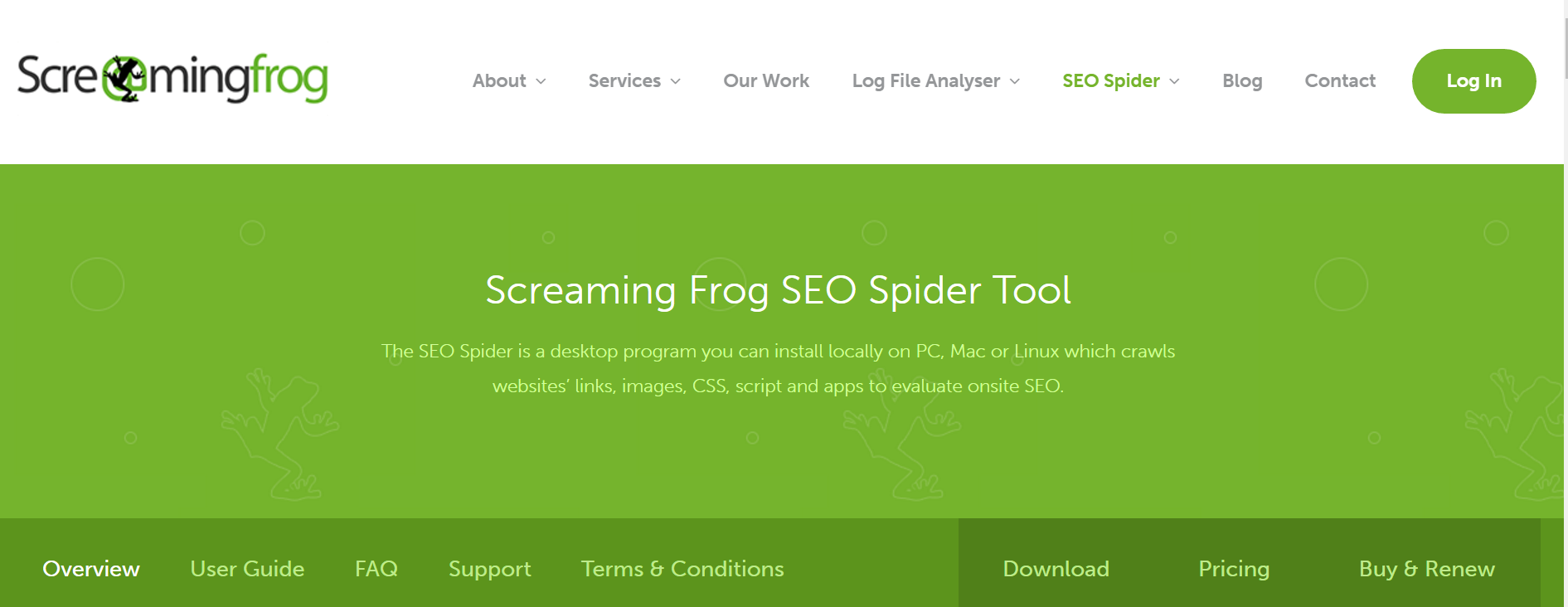
And once you’ve done all you can for optimization, you need to make sure that you’ve not missed anything. Screaming Frog is the best tool for getting a crawl report with specific identification of issues (if any) related to SEO such as 404, CSS, images, dead links, redirects, duplicate content or scripts that are hindering the users from accessing your e-commerce website. It’s different from the other tools in that it’s a software which you can download to your desktop and run it online. It’s also different in that Screaming Frog identifies issues that can be fixed with robot.txt or XML sitemap. Don’t go without it.
Broken Link Checker
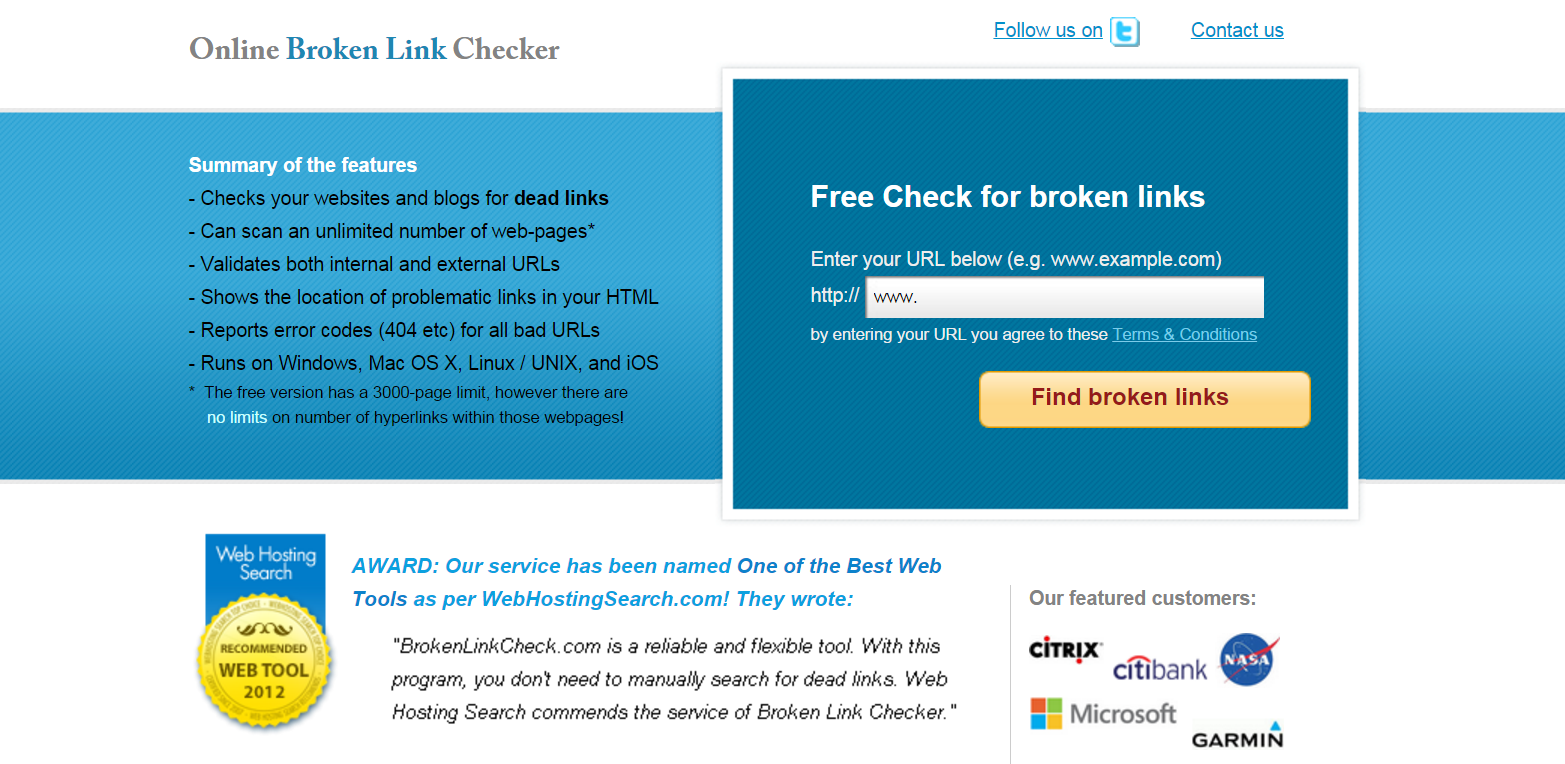
Without you being aware of it, from time to time your links get dead for any number of reasons. It could be because someone who’s linked to your website decided to remove it; the link you’ve linked to some other web page has shut down; or the URL may have changed by their webmaster. Whatever the reason, broken links create bad user experience, and what Google hates is a site which does this. To save your site from being penalized for such bad UX, you need only to use this Broken Link Checker – it lists all the dead links; links which have been removed; or they have issues with them, and suggest actions to take for remedying the errors. Another best friend you should have on your list.
Olark
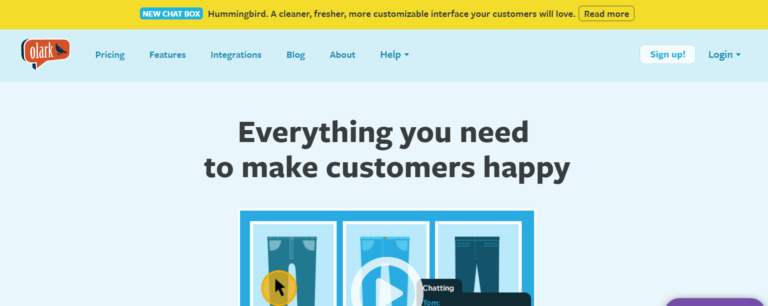
Last but not least, is tackling the issue of cart abandonment. What frustrates online shoppers the most is when they’ve already made the decision to purchase and at the last moment they can’t find that critical information to move to checkout. That’s where being there through summarizing tool can help increase your e-commerce conversion. Olark is not some ordinary chat program. It can actually track your prospects by following them and letting you know the user is almost at checkout. By prompting them and assisting them in their purchase you win them over and convert without being pushy.
There you have it, the top must-have ecommerce website optimization tools to get you going and win customers. Have you tried any of them yet? Share your experience with us in the comment below.


